Recently, PhD student Craig Harper attended and presented at the International Association for the Treatment of Sexual Offenders’ (IATSO) biennial conference in Porto (Portugal). The FCRG team caught up with Craig to hear how he found the experience.
1) Hi Craig, can you briefly describe the IATSO conference and why you wanted to attend/present there?
IATSO is one of the largest societies within which members either research sexual crime or work directly in the treatment, sentencing and management of sexual offenders. I wanted to attend the conference in Porto in order to hear about the latest research developments in the field, as well as to present my own work, and be able to network with some of the biggest names in the world that work in a similar area to the one that I am currently researching.
2) What did you present?
I was fortunate enough to have both of my submitted abstracts accepted. Firstly, I presented a poster based on my work that reimagines and reconceptualises the Community Attitudes Towards Sex Offenders (CATSO) scale. This work uses classic and contemporary theoretical work into the differences between ‘attitudes’ (which typically involve emotionally-driven judgements) and ‘stereotypes’ (which typically involve knowledge-based judgements), and applying these theories to the CATSO scale. When we looked at the questions of the CATSO, we realised that many of them referred to stereotypes, rather than attitudes, so we have submitted a paper (currently under review with the journal ‘Psychology, Crime & Law’) reconceptualising the CATSO as an outcome measure, rather than one of attitudes. This new scale is called the ‘Perceptions of Sex Offenders Scale’ (PSO).
Secondly, I gave a talk on my first piece of PhD research, within which I identified that a small number of sexual crime cases dominated news coverage of this issue, and subsequently appeared to impact upon public and political discussions about how we should respond to sexual crime at both the legislative and social levels. From these findings, I developed a theoretical model called the ‘Prototype-Willingness Model of Sexual Crime Discourse’, which is essentially a dual-process model of thinking, within which the activation of a ‘prototype’ (or an example case) brings about a more punitive response to sexual crime than would otherwise have been suggested. For more information on this work, you can see a post that I wrote for the growing nextgenforensic blog, or see the paper that I published (co-authored with my PhD supervisor, Prof. Todd Hogue) in the Howard Journal of Criminal Justice.
3) How did you find that experience/s?
Having the opportunity to present my work to some of the leading names in my area was both quite nerve-wracking and exciting. I found the experience to be a positive one, though, and received many complimentary comments about my work. I was even stopped in the street in Porto after the event by a delegate from the USA who said he enjoyed the talk that I delivered – which was great to hear! Since the conference, we have been contacted by several researchers who are interested in using the PSO, and are planning to launch a study looking at pan-European (and beyond) perceptions of sex offenders at some point, based on some of these discussions.
4) How did this conference differ to others you have presented at?
IATSO was probably the largest conference that I have presented at so far, but it was also one of the friendliest. There was a really positive atmosphere at the majority of the talks, with comments and questions being generally constructive. The one thing that did jump out at me was how approachable some of the bigger names in the field were, and how interested they were in hearing about your research. Being able to have conversations with people who I’ve been citing in essays and theses as an undergraduate and postgraduate was the biggest thing I’ll take away from the conference.
5) What was the best part/s of the conference for you and why?
The friendly nature of the conference was a big highlight. With there being such an ‘all-star cast’ of keynote speakers, I expected the conference to be quite formal, but was pleasantly surprised by how laid-back and responsive people were to both new ideas and new researchers. As I said previously, being able to see and speak to some of the biggest names in the field was also a highlight.
6) Finally, what would be your advice to other postgrad students who are thinking of attending/presenting at IATSO (or indeed any conference in the forensic field)?
Go for it! Having the opportunity to get your work heard about, network with leading names, and hear about the latest developments in the field is something that cannot (and should not) be missed. The next IATSO will be hosted in Copenhagen in 2016, but before that is ATSA, next year, in Montreal. Why not submit something there, where there’s a great postgraduate/young researcher community, too!
